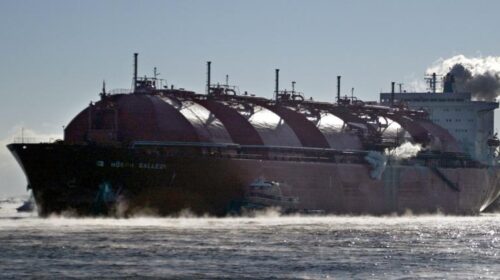esterday New Englanders had reason to feel a little more … European than usual. that’s because according to Department of Energy data they were paying a spot price of $30.5 per million British thermal units for natural gas.
This is an absurd price, in line with what Europeans, facing their worst energy crisis in a generation, have been suffering in recent months. To put it in context, $30.5 per mmBtu is the equivalent of paying $180 for a barrel of oil (double what it is today), or 20 cents per kilowatt-hour for electricity. In other words: nuts.
How much are Bostonians getting shafted on natural gas? By comparison, the spot price of gas on the Gulf Coast of Texas and Louisiana yesterday was $5.50 per mmBtu (the energy equivalent of about $33/bbl oil). This price spread is exceptionally wide, nearly unprecedented. But it’s easily explained — by the perennially misguided energy policy in New England.
Just 200 miles to the south, beneath western Pennsylvania, lay the nation’s biggest gas field — the Marcellus shale. From practically nothing 15 years ago, the Marcellus now provides roughly a third of America’s gas supply, more than 30 billion cubic feet per day. America’s shale gas fracking boom is the primary reason why the nation has been able to dramatically switch away from dirtier coal, and cut overall carbon dioxide emissions by nearly 20% — more than any other leading economy.
But very little Marcellus gas flows to New England, because NIMBYs and their politicians have blocked construction of pipelines. Yet the region still relies on cleaner-burning gas to fuel power plants. Over the weekend, when New England was walloped by snow, its power grid was running 37% natural gas, 22% oil, 22% nuclear, 11% renewables, 6% hydro power, and less than 1% coal. (See current mix here.)
So how does New England get its gas? With insufficient pipeline service, demand is met via deliveries by ship, in giant insulated tankers carrying -260 degree condensed liquefied natural gas, most of which dock at the Everett LNG regasification terminal in Boston harbor, owned by Exelon Generation.







